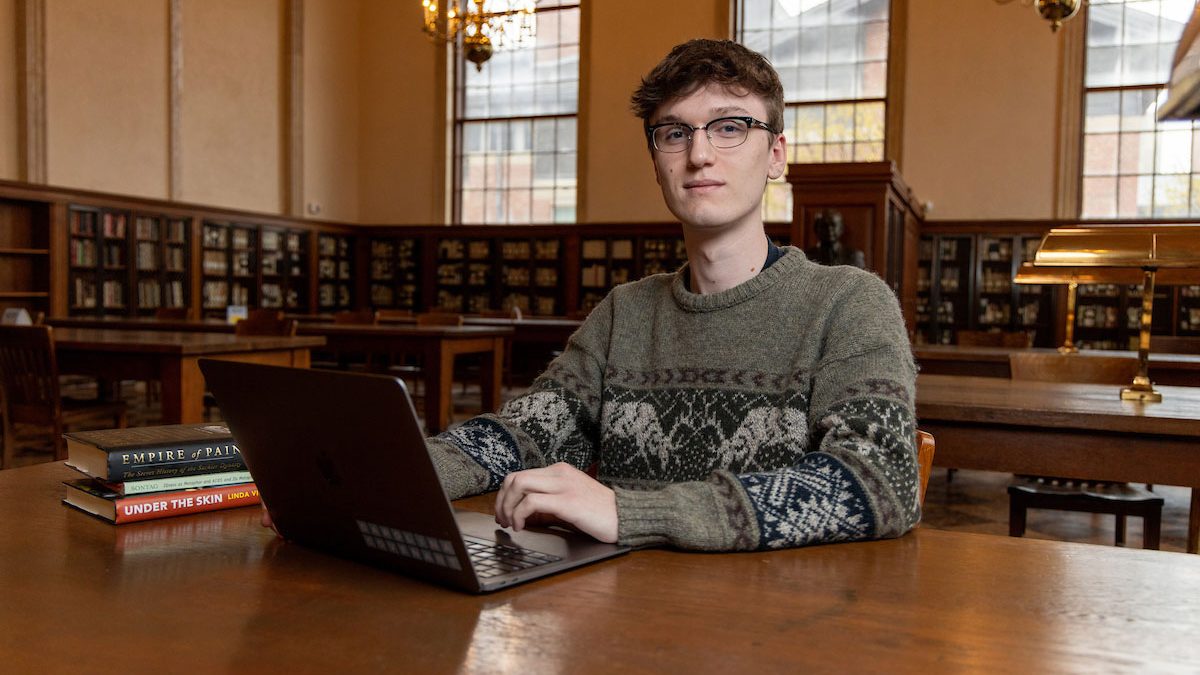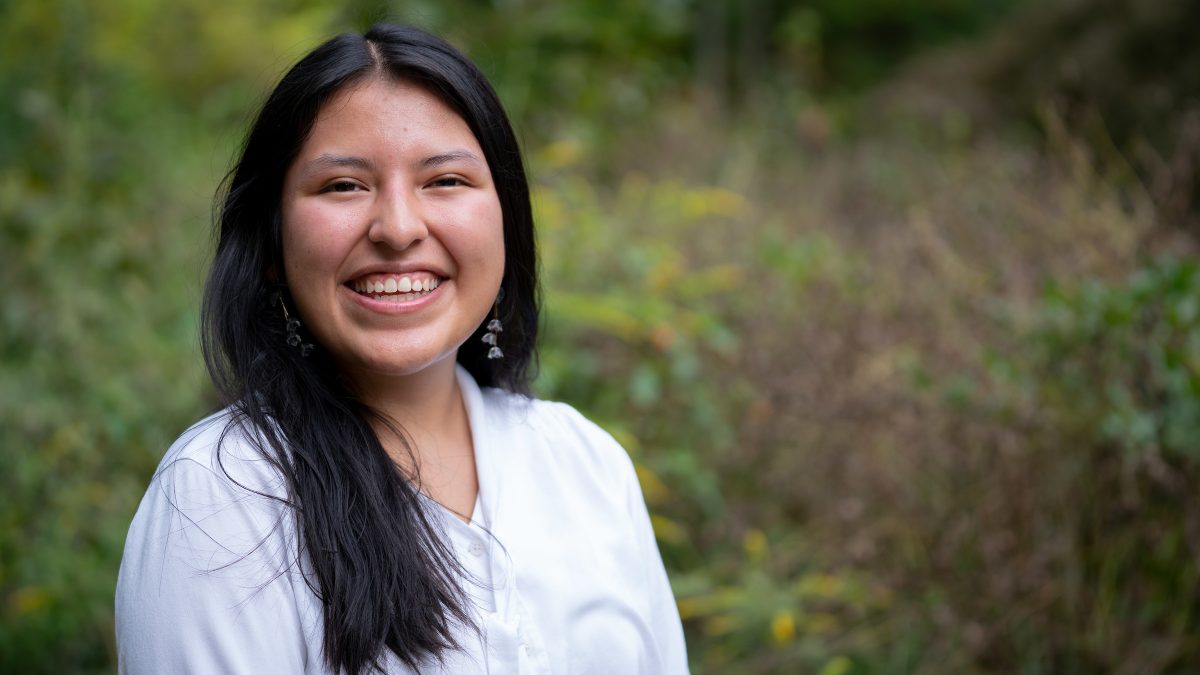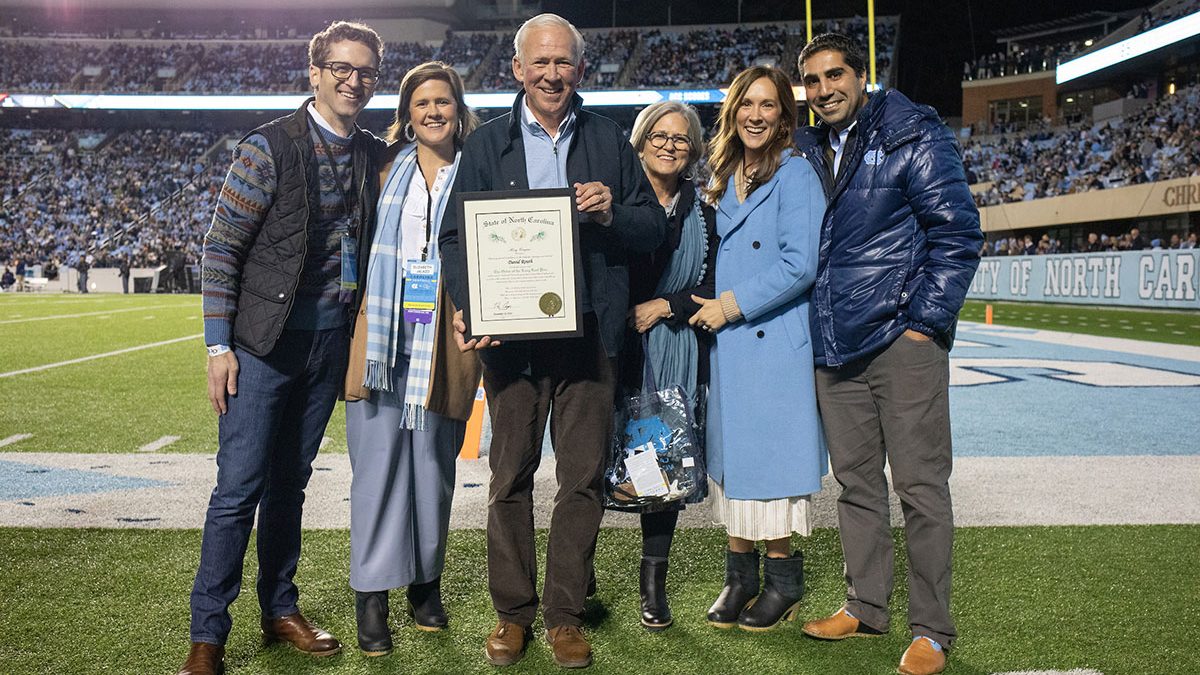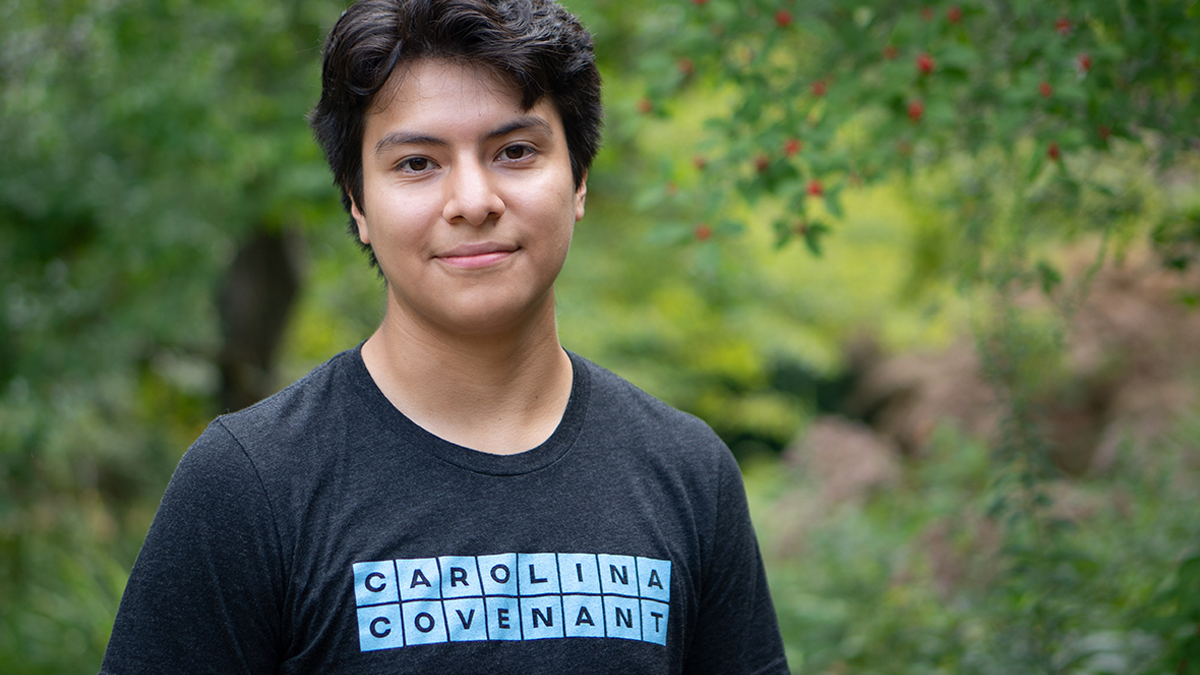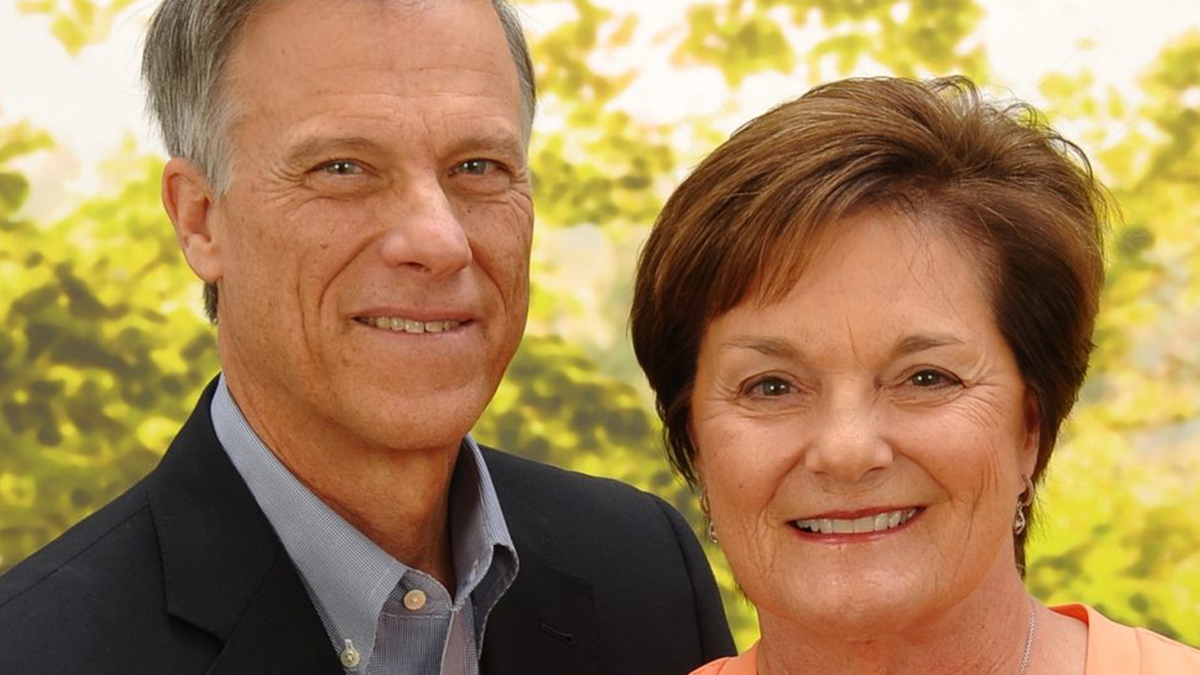Taking on STEM’s Biggest Challenges
Chancellor's Science Scholar Yolanda Simpson ’22 likes living outside her comfort zone as she forges a path for a more diverse future in STEM.

Chancellor's Science Scholar Yolanda Simpson ’22 likes living outside her comfort zone as she forges a path for a more diverse future in STEM.
Yolanda Simpson ’22 is not one to back down from a challenge. When she began her sophomore year in high school, she heard whispers from friends about how difficult her chemistry class would be. Rather than feeling discouraged or intimidated, Simpson welcomed the demands of a difficult subject.
Even when she struggled with the material initially, she dug in and redoubled her efforts. And the hard work paid off.
“Instead of just coasting, I put in the effort,” Simpson said. “I like to lean into the uncomfortable. I like being in situations where I have to adapt, or change what I’m doing, or just try harder. And pretty soon, my grade jumped 20 points to an A.”
For Simpson, this class was the spark that ignited her interest in science. It was also an initial step that eventually led her to apply for and receive a scholarship from Carolina’s Chancellor’s Science Scholars program, a merit-based program that provides scholarships, opportunities to participate in cutting-edge research, professional development, leadership training and mentorship designed to pave the way for academic success and future achievement in STEM fields.
Propelled by the support of the Chancellor’s Science Scholars program, Simpson is flourishing as a biochemistry and neuroscience double-major and Phi Beta Kappa inductee at Carolina. She serves as a volunteer and teacher at local organizations and schools, and is president of the a cappella group UNC Cadence.
Simpson again stepped out of her comfort zone this summer when she worked in a pharmacology lab at Michigan State University. After a few weeks of work, Simpson approached the principal investigator in the lab and asked if she could lead her own research project to screen drugs to reverse liver fibrosis, or scarring of the liver. The researcher told her that he’d never seen an undergraduate take charge of a project like that.
“I said, ‘Okay but, really, can I please do it?’ He agreed, and it was just so surreal to have that sort of autonomy,” Simpson said. “Honestly, I’m still processing it.” Simpson will present her findings at a research conference this fall.
As Simpson completes her final year at Carolina, there is one more challenge that has stuck with her, one that she is determined to help every field of STEM overcome. It is the lack of minority representation in STEM, a problem that discourages young students of color to pursue STEM subjects.
“I grew up in a predominantly white area, where many of my classes and activities severely lacked people of color,” Simpson said. “Despite having many strong women of color to look to for mentorship in other areas, I never saw someone who looked like me in a STEM field, which made it so much harder for me to commit to pursuing that in college. I had to become the representation I wished to see.”
In fact, Simpson is already offering one very tangible solution. This year, she was named the recipient of the prestigious Eve Carson Scholarship, named for the former UNC-Chapel Hill student body president. The award provides Simpson with $15,000 toward her senior year, as well as $5,000 for a summer experience.
Simpson has allocated a portion of the summer experience award to fund her new “Courage to Succeed” scholarship for first-year students entering college this fall. Up to five students from underrepresented backgrounds who intend to pursue STEM majors will each receive a $300 book scholarship to help defray their college expenses.
“I am committed to making an impact in this community, and every community I’m a part of, because ensuring the success of the next generation of scientists will ultimately help me give back to those who helped me succeed,” Simpson said.
